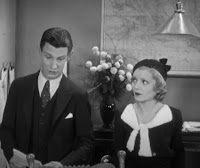King Odenathus of Syria has always been an ally to Rome, but when he is murdered, Queen Zenobia breaks their treaty and attacks Roman troops near the royal city of Palmyra. Marcus Valerius, a valued Roman commander, is captured, enslaved, crucified on an X-shaped cross in the hot sun and tortured by the slave boss before he comes to the attention of Zenobia, who makes him a palace slave. Valerius makes contact with Julian, a Roman spy in Palmyra (side plot note: Julian is in love with Bathsheba, a vestal virgin and sister of the dead king, who will eventually be sacrificed). Learning that Julian is with a small group of Romans outside the city, Valerius pretends to switch sides and offers his personal services to the queen, with the proof being that he betrays the Romans to the Syrians—they play along with their capture and are rescued (by a small group of Christians if I'm not mistaken) just before they are ordered to be put to death. But Valerius and Zenobia find themselves falling in love and Valerius tries to get Palmyra and Rome to negotiate. Upsetting his plans is Zemanzius, the queen's prime minister, who is actually working with Prince Shapur of Persia toward their own takeover of Palmyra. Events build to a climactic battle that tests the tie between Valerius and Zenobia.
Zenobia and Odenthaus are based on actual historical figures, but I suspect little else here is. Still, the narrative is richer than most of the later sword and sandal films that came in the wake of the huge success of the 1958 Hercules movie with Steve Reeves. Though certainly aligned with the peplum genre (togas, torture, sexy queens, sacrifices), in some ways this is more like the Hollywood biblical adventures of the 50s, with more attention paid to politics and character development than one would see in later genre films. There are no real muscle men; the lead actor, Georges Marchal (pictured), is handsome and beefcakey (and shirtless on occasion) but he's no Hercules. The sex kittenish Anita Ekberg is quite attractive as Queen Zenobia (with her breasts occasionally threatening to escape her robes) but her acting is rather bland, and she doesn't have the gravitas of a queen—she comes off more like a court concubine. Jacques Sernas as Julian makes for a handsome buddy to the hero, and Folco Lulli (Zemanzius) is an OK villain. Chelo Alonso makes an impression as the scheming lover of Zemanzius, especially when she does an erotic belly dance for the court. There are no gladiators in sight—the original title was SIGN OF ROME—and the action is confined to the last 15 minutes. The battle is well done, though to an unnerving degree, it all looks fairly dangerous for both the horses and the men. [Amazon Prime]












